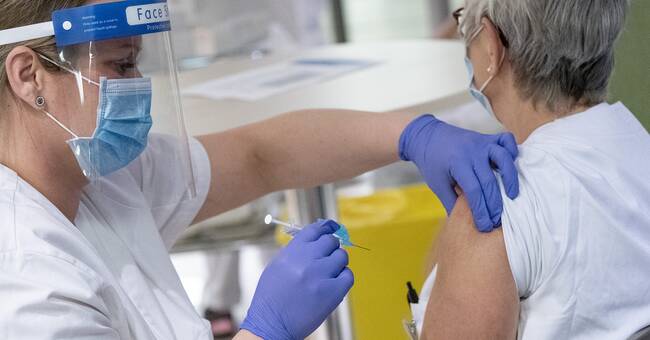In the pharmaceutical industry, this is not a big deal.
Vaccine deliveries are occasionally delayed, as are other medications.
The difference this time is that millions of people across Europe are waiting impatiently for the syringes, and for life to become more normal.
Therefore, it is unfortunate that Astra Zeneca can not deliver as much vaccine as they promised in the coming weeks.
Sweden receives 400,000 doses, when we expected one million.
This means that 200,000 people, instead of half a million, can be vaccinated in February.
The fact that the EU today approved Astra Zeneca's vaccine was expected, although the effect for those over 65 is uncertain.
The company's vaccine has so far not been sufficiently tested on this group.
Several questions remain after today's announcement.
Not sure if the syringe completely blocks infection
In the autumn, Astra Zeneca stated that the syringes provide protection against covid-19 of between 62 and 90 percent, depending on the dose given.
The dose that provided 90% protection was discovered when a group of test subjects inadvertently received a smaller dose of the vaccine than intended.
In its approval today, the EU Medicines Agency estimates that the vaccine provides 60 percent protection against the disease, and thus has approximately the same effect as the flu vaccine.
The vaccine seems to be able to provide a high level of protection against getting sick in covid-19, but it is uncertain whether the syringes completely block the infection, and what effect it has in that case on the spread of infection, and how long the protection lasts.
Hopefully a lot will clear up in the coming weeks.
Astra Zeneca is currently conducting another large study on its vaccine in the USA, which includes significantly more elderly people, as soon as more data will be available on how effective protection the syringes provide for people over 65 years of age.
The study is also expected to clarify which dosage provides the best protection.
The results from the American study should be ready within a few weeks.
Swedish authorities may face a challenge in motivating people to want to take Astra Zeneca's vaccine, which is less effective than Moderna's and Pfizer / BioNtech's vaccine.
Their syringes provide 95% protection, and increased deliveries are expected in the spring.
According to Sweden's vaccine coordinator, both companies will have access to more factories in the coming weeks and will then be able to increase the production of their vaccines significantly.
In total, Sweden has an agreement to receive vaccines from the companies that are sufficient for just over five million people.
The EU is currently negotiating to double the dose contract from Pfizer / BioNtech.
"Help is on the way"
The EU is also examining a vaccine from Janssen, which today presented positive results.
Their vaccine, which only needs to be given in one dose and lasts for several months in the refrigerator, provides 66 percent protection against severe to moderate disease in covid-19.
Sweden has an agreement via the EU to get a vaccine from the company that is enough for 4.5 million people and an approval in the EU can come quickly.
At the same time, there are clouds of unrest, in the form of the new suspected more contagious variants that are spreading both in the UK and in South Africa.
Janssen's vaccine seems to be less effective against the South African variant.
It is important, however, that the vaccine seems to protect just as well against serious illness in South Africa as well.
Later this spring, results are also expected from German Curevac, which is developing a vaccine with the same mRNA technology that Pfizer / BioNtech and Moderna use, and with which the EU already has an agreement.
So for anyone impatiently waiting for the syringes, there is only one thing to say: Hold on.
Help is on the way, even if it takes a while.

